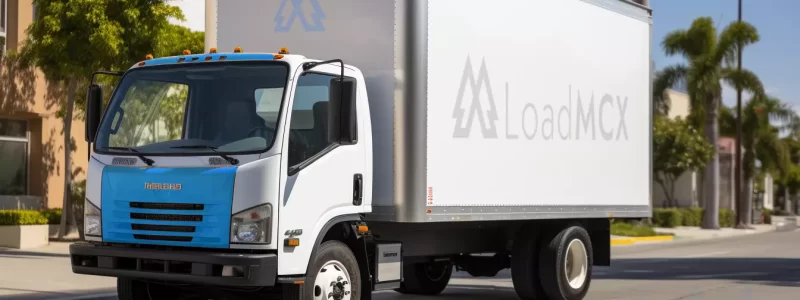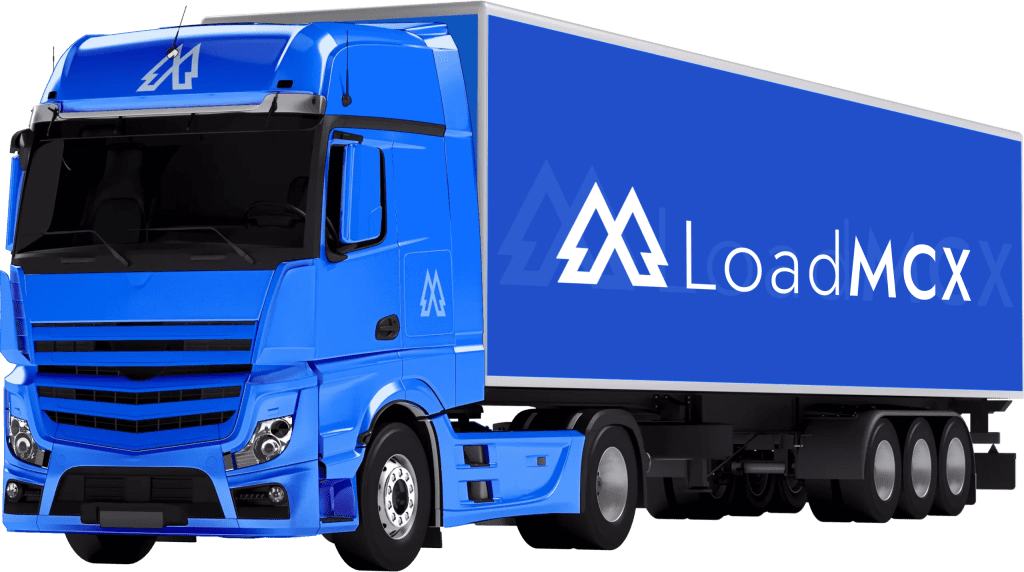Efficient route planning is the cornerstone that holds the entire supply chain together. For box trucks, which play a pivotal role in last-mile delivery and small-scale freight transport, optimizing routes is crucial for reducing costs, enhancing delivery speed, and improving overall customer satisfaction.

Utilize Advanced Routing Software
The advent of technology has brought forth sophisticated routing software that can significantly simplify the route planning process. Investing in advanced route optimization tools allows box truck operators to consider factors such as traffic conditions, weather, and delivery windows, ultimately leading to more accurate and time-efficient routes.
Advanced route optimization is a sophisticated logistics strategy that leverages cutting-edge technology to streamline the planning and execution of delivery routes. At its core, this process involves the use of specialized software and algorithms to analyze multiple variables and determine the most efficient path for transportation. These variables may include real-time traffic conditions, delivery time windows, vehicle capacity, and even weather forecasts. By considering these factors, advanced route optimization aims to minimize transportation costs, reduce fuel consumption, and enhance overall operational efficiency.
The primary goal of advanced route optimization is to empower businesses with the ability to make data-driven decisions that result in more effective and economical transportation routes. The software dynamically adjusts routes in response to changing conditions, such as traffic congestion or unexpected delays, ensuring that delivery schedules remain on track. This not only leads to cost savings but also contributes to improved customer satisfaction by providing accurate delivery estimates and reducing the likelihood of service disruptions.

Real-Time Traffic Monitoring
To avoid unexpected delays and detours, integrating real-time traffic monitoring tools into route planning can be a game-changer. By constantly assessing live traffic data, drivers and dispatchers can make informed decisions, rerouting deliveries to avoid congested areas and ensuring timely arrivals.
Real-time traffic monitoring tools offer a myriad of benefits for businesses involved in transportation and logistics. One significant advantage is the ability to make informed and proactive decisions in response to dynamic traffic conditions. By continuously tracking real-time data, these tools empower fleet managers and drivers to identify traffic congestion, road closures, or accidents promptly. This information allows for route adjustments, enabling vehicles to navigate around obstacles and choose alternative paths to reach their destinations efficiently.
Another notable pro of using real-time traffic monitoring tools is the optimization of delivery schedules. By staying ahead of traffic challenges, businesses can provide more accurate and reliable delivery estimates to customers. This not only enhances customer satisfaction but also helps build trust and credibility in the eyes of clients. Moreover, real-time traffic monitoring contributes to overall operational efficiency by minimizing idle time, reducing fuel consumption, and improving the overall performance of the fleet.

Consider Time Windows and Delivery Priorities
Efficient route planning takes into account specific time windows for deliveries and prioritizes them accordingly. Analyzing delivery priorities ensures that urgent shipments are given precedence, contributing to improved customer satisfaction and fulfillment of service-level agreements.
Analyzing delivery priorities is a critical aspect of effective route planning for box trucks, ensuring timely and efficient transportation of goods. To begin, it’s essential to categorize shipments based on urgency, customer requirements, and any specified delivery windows. Identify high-priority deliveries that demand immediate attention, such as perishable goods or time-sensitive packages. This initial classification lays the foundation for a strategic approach to route optimization.
Next, consider the geographical distribution of deliveries and group them based on proximity. Clustering deliveries in specific areas minimizes unnecessary travel and reduces overall transit time. Additionally, understanding customer preferences and contractual agreements helps refine delivery priorities. Some clients may prioritize morning deliveries, while others may be flexible throughout the day. Incorporate these preferences into the route planning process to align with customer expectations and enhance satisfaction.
Box truck operators can optimize routes for efficiency, meet critical deadlines, and ensure a seamless and reliable transportation service for their clients. This strategic approach not only streamlines operations but also contributes to a positive customer experience, a key differentiator in the competitive logistics industry.

Route Consistency for Regular Stops
For box trucks with regular delivery routes, establishing consistency in routing can enhance efficiency. By maintaining familiar routes for routine stops, drivers become more adept at navigating their designated areas, reducing the likelihood of errors and delays.
Consistency in routing plays a pivotal role in enhancing efficiency for businesses involved in transportation, particularly for those utilizing box trucks. Establishing and maintaining consistent routes for routine stops brings about several advantages. Firstly, it fosters a deep familiarity among drivers with the designated areas they regularly traverse. This familiarity allows drivers to optimize their routes over time, becoming more adept at navigating specific neighborhoods, understanding traffic patterns, and anticipating potential challenges.
Moreover, consistency in routing contributes to improved time management. Drivers, accustomed to a set schedule and route, can plan their days more efficiently, reducing idle time and minimizing delays. This predictability not only benefits drivers but also enables better coordination between the logistics team, ensuring that resources are allocated optimally. Over time, this practice leads to a more streamlined and punctual delivery process, enhancing overall operational efficiency.

Optimize for Fuel Efficiency
Fuel costs are a significant component of a box truck’s operational expenses. Incorporating fuel efficiency into route planning involves optimizing routes to minimize mileage, reduce idle time, and avoid unnecessary stops. This not only benefits the bottom line but also aligns with eco-friendly practices.
Fuel efficiency is paramount for box truck operators, constituting a critical factor in the overall operational cost structure. Box trucks are commonly used for short to medium-haul deliveries, making fuel expenses a significant portion of their operational budget. Therefore, optimizing fuel efficiency directly impacts the bottom line, allowing operators to reduce costs and allocate resources more effectively. With fluctuating fuel prices, prioritizing fuel efficiency becomes a strategic imperative for maintaining competitiveness and profitability in the logistics industry.
Beyond financial considerations, environmental sustainability is an increasingly important aspect of modern business practices. Box truck operators, by investing in fuel-efficient technologies and adopting eco-friendly practices, can contribute to reducing their carbon footprint. This not only aligns with corporate social responsibility goals but also positions the business favorably in the eyes of environmentally conscious clients and regulatory bodies.

Dynamic Route Adjustments
Flexibility is key in the logistics industry, and route planning should be adaptable to unforeseen circumstances. Implementing dynamic route adjustments allows for real-time changes in response to unexpected events, ensuring that the delivery schedule remains on track.
Dynamic route adjustments contribute to operational efficiency by optimizing resource allocation. When unexpected events occur, such as a sudden increase in demand or a change in delivery priorities, operators can use real-time data to reroute vehicles accordingly. This not only prevents bottlenecks in the delivery process but also allows for the efficient utilization of fleet resources.

Driver Input and Feedback
Box truck drivers are on the front lines of delivery operations, and their insights can be invaluable for optimizing routes. Encouraging open communication and seeking feedback from drivers can lead to route adjustments based on their firsthand experiences, contributing to continuous improvement.
Encouraging a culture of communication and feedback is essential. Box truck operators often encounter real-time challenges such as road construction, detours, or sudden traffic jams that might not be reflected in traditional mapping systems. By creating a collaborative environment where drivers feel comfortable sharing their insights, businesses can tap into a wealth of practical information. This two-way communication not only empowers drivers to voice concerns but also provides a platform for them to propose innovative solutions and alternative routes based on their on-the-ground experiences.
Incorporating driver feedback into the route optimization process fosters a sense of ownership and engagement among the drivers. When they see that their input directly contributes to refining routes and improving operational efficiency, it boosts morale and creates a more harmonious working relationship.

Invest in GPS Tracking Technology
GPS tracking technology provides real-time visibility into the location of box trucks. Integrating this technology into route planning not only enhances monitoring but also allows for proactive decision-making in response to deviations from the planned route.
GPS tracking technology is a game-changer for box truck operators, offering a suite of benefits that enhance operational control, efficiency, and overall fleet management. The real-time visibility provided by GPS tracking allows operators to monitor the location of their box trucks at any given moment. This level of insight is instrumental in optimizing route planning, ensuring that deliveries are on schedule, and mitigating the impact of unforeseen circumstances. Whether dealing with traffic congestion, road closures, or unexpected delays, GPS tracking empowers operators to make informed decisions and dynamically adjust routes for optimal efficiency.
Beyond route optimization, GPS tracking technology plays a crucial role in enhancing the security and safety of box truck operations. In the event of theft or unauthorized use, GPS tracking enables swift identification of the vehicle’s location, aiding in the recovery process. Additionally, this technology promotes driver safety by enabling operators to monitor driving behavior, track adherence to speed limits, and implement measures to enhance overall road safety. By leveraging GPS tracking, box truck operators can proactively address potential issues, reduce the risk of theft, and prioritize the well-being of both their drivers and the cargo being transported.
The data generated by GPS tracking systems offers valuable insights for strategic decision-making. Operators can analyze historical route data, identify patterns, and make data-driven adjustments to further optimize their operations over time.

Staying Efficient
Efficient route planning is a strategic move for box truck operations and owner/operators. Technology, considering time windows, prioritizing deliveries, and embracing adaptability, businesses can streamline their delivery processes, reduce costs, and enhance customer satisfaction.
As the industry continues to evolve, mastering the art of route planning will undoubtedly be a defining factor in the success of box truck logistics operations.
Search The Box Truck Directory
Search & find over 10k+ box truck owner-operators on the largest box truck directory!
